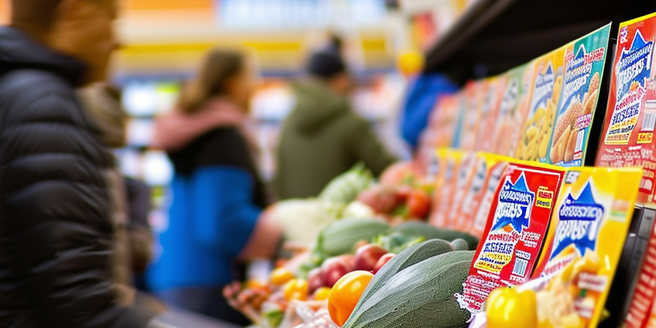Influence Of Sweepstakes On Consumer Behavior

Understanding Sweepstakes and Their Appeal
Sweepstakes offer a unique blend of excitement and opportunity that captivates consumers. These promotional strategies tap into the human desire for reward without the risk. For businesses, they provide a direct way to engage with audiences, drawing them in with the prospect of winning a prize. The appeal is largely emotional; the chance to win often sparks imagination and hope, making sweepstakes an effective tool for capturing consumer attention. Companies leverage this psychology by using enticing prizes that align with their brand, thereby enhancing consumer interest. As a result, sweepstakes remain a popular marketing tactic that continues to draw significant participation from consumers who find the prospect of winning irresistible.
Psychological Impact of Sweepstakes on Consumers
Sweepstakes exert a powerful psychological impact, influencing consumer behavior through emotions such as excitement, anticipation, and curiosity. This emotional engagement often leads to increased brand interaction and positive associations. The anticipation of winning can create a temporary high, enhancing consumer mood and increasing the likelihood of participation. Additionally, the chance-based nature of sweepstakes introduces an element of luck, appealing to an inherent willingness to take risks for potential gain. This psychological draw keeps consumers returning to participate repeatedly, hoping for a favorable outcome. The thrill of possibly winning acts as a strong motivational factor, encouraging not just engagement with the sweepstakes itself, but also with the brand running the promotion.
The Role of Sweepstakes in Brand Loyalty
Sweepstakes play a significant role in cultivating brand loyalty. By offering exciting rewards, brands can create an emotional connection with consumers that extends beyond the duration of the contest. This connection fosters a sense of goodwill and appreciation, encouraging consumers to favor the brand in future purchasing decisions. The excitement and positive emotions associated with participation contribute to a fondness for the brand, building long-term loyalty. Furthermore, brands that consistently run enticing sweepstakes can establish a reputation for generosity and engagement, further solidifying their position in consumer minds. By rewarding consumers, sweepstakes not only attract new customers but also nurture existing relationships, encouraging repeat interactions and continued brand allegiance.
Sweepstakes: Driving Impulse Purchases
Sweepstakes have the power to drive impulse purchases by leveraging the allure of potential rewards. These promotions often spark a sense of urgency, encouraging consumers to make quick buying decisions to maximize their chances of winning. The excitement surrounding a sweepstakes can create an environment where consumers justify impulsive spending, viewing it as a path to additional benefits. This urgency, coupled with the appeal of winning, can lead to spontaneous purchases that boost sales. Additionally, the fun and engagement associated with sweepstakes can cause consumers to associate positive feelings with their purchasing experience, further incentivizing them to buy on impulse. Thus, sweepstakes act as a catalyst, prompting increased consumer spending through targeted, time-limited opportunities.
How Sweepstakes Affect Consumer Trust and Perception
Sweepstakes can significantly influence consumer trust and perception. When brands run transparent, well-executed sweepstakes, they demonstrate integrity and fairness, fostering trust among consumers. This trust manifests as a positive perception of the brand, encouraging future engagement and repeat patronage. Conversely, poorly managed sweepstakes can damage trust and lead to negative perceptions. Transparency in rules, prize distribution, and participant communication is crucial for maintaining consumer faith. A brand’s reputation can be bolstered by the successful execution of sweepstakes that highlight their commitment to customer satisfaction. By managing such promotions effectively, brands can enhance their image, cultivate lasting relationships, and reinforce consumer belief in their brand promise.
Evaluating the Effectiveness of Sweepstakes Marketing
Evaluating the effectiveness of sweepstakes marketing involves analyzing both quantitative and qualitative data to assess impact. Key performance metrics include increased engagement, brand awareness, and sales uplift. By tracking participation rates, social media mentions, and conversion rates, marketers can gauge the success of their campaigns. However, it’s also important to consider qualitative feedback from participants to understand consumer sentiment and satisfaction levels. This holistic evaluation helps brands optimize future sweepstakes by identifying strengths and areas for improvement. Effective sweepstakes marketing is not just about short-term gains but also enhancing long-term brand loyalty. Ultimately, assessment should focus on whether the sweepstakes have met strategic goals, contributed to positive consumer perceptions, and strengthened brand relationships.